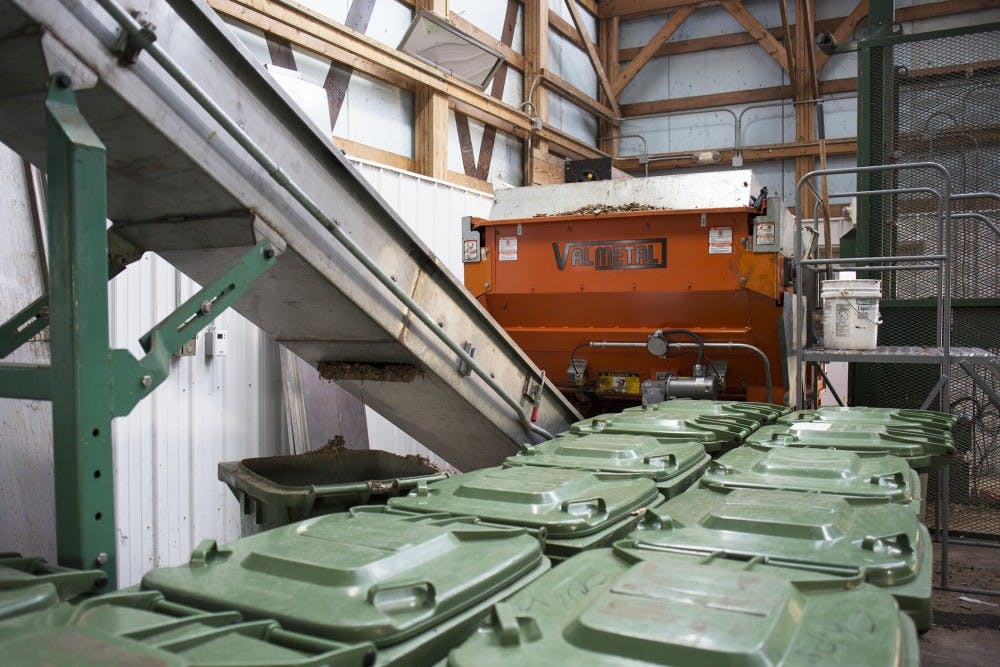Ohio University was one of the schools recognized by The Washington Post for its sustainability program—more specifically—mitigating food waste in dining halls through composting.
The university’s process makes OU more climate-friendly while also saving roughly $40,000 a year in fertilizer costs; however, this is typically offset by labor costs, Sam Crowl, director of sustainability, said.
“When we think about sustainability, we think about what we're trying to do for people, for the planet and for economic prosperity,” Crowl said. “It's important to take all three of those things into consideration.”
The university uses the soil created from food waste throughout campus to assist with landscaping, including flowerbeds and intramural fields.
“The soil amendment that is produced from the compost operation is nutrient-rich; it's just got so many healthy nutrients in it that helps everything grow,” Crowl said.
The Office of Sustainability and dining hall staff work together to compost leftover food to ensure the least amount will go into landfills.
Tim Bruce, executive chef of culinary services, explained that a majority of food waste is accumulated from leftover food from students.
“Some 99% of our compost is postconsumer, which is coming off the plates from students, coming through the dining hall,” he said, adding, “Our dish room staff then scrapes those (plates) into the various compost containers, which we have dozens of at each location.”
When people leave OU’s dining halls, they place their leftover food on a conveyor belt for the culinary staff to dispose of the food into specific compost bins. Then, five times a week, the bins will be taken to the composting facility located at the Ridges. The food waste is mixed in a vessel with wood chips until it is broken down properly, Crowl said.
At OU, sustainability is encouraged before food even reaches the dining hall. Frank Pazzanese, executive director of culinary services, said the department considers sustainability when purchasing dishware.
“We try to do a good job of finding compostable products, and we still have a mandate by the university to stay within a budget; sometimes this stuff costs as much as four times as the normal stuff,” Pazzanese said.
Pazzanese also emphasized how often the science can change about what makes a well-compostable product.
For many years, Pazzanese was told to use bamboo products due to its effectiveness in composting. However, the culinary services later found out bamboo is extremely expensive and doesn’t break down more than other compost products.
The initial reason the sustainability office started composting was due to the previous Director of Sustainability, Sonia Marcus; she applied for grants to help fund this project, Crowl said.
The purpose of the project is to mitigate OU’s production of methane gas and, in turn, mitigate its carbon footprint, Crowl said.
“The (Washington Post) article didn't really mention that the main purpose of this operation is not just that circular economy kind of process, but that we were trying to keep that methane-producing material out of the landfill,” Crowl said.
Pazzanese said he believes climate change is real and this kind of sustainability is crucial not only for OU but also for the earth.
“Sometimes we don't want to focus on (climate change), and it's just like, we always think, ‘Well, I'll be gone when I have to deal with it,’ but we're going to leave somebody that's part of us here to deal with it, and that's not right,” Pazzanese said.






